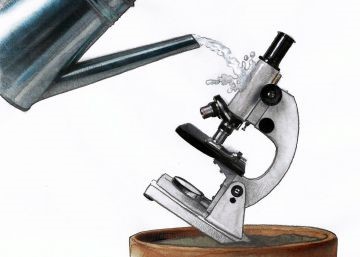In school, we all learn how to take a list of numbers, order them from least to greatest and find the mean, median and mode, which are very simple statistical tools. The ability to find the mean, or the average, of a list of numbers, is itself an advantage in business. When summarizing numerical data using statistical methods, enhancing the understanding of the company's actual conditions is possible.
Statistics plays an important role in business. A successful businessman must be very quick and accurate in decision making. He knows what his customers want, and therefore, know what to produce and sell and in what quantities. Statistics helps businessmen plan their production according to the taste of the customers and also, quality of products can be assessed more efficiently by using statistical methods.
Statistics as a Performance Manager
Statistics has a similar application in business, such as a manager's role in performance management. A manager collects data about employee productivity, such as the number of tasks completed or the number of units manufactured. One must also analyze the data to find ways in which an employee should improve to reach his maximum potential. In a hypothetical scenario, if a manager finds that an employee's number of finished tasks drops by 15 percent every last working day in a week, he should communicate with the employee, setting the expectation that his/her output will remain above a specified minimum level every day of the working week.

Creation of Alternatives
Beyond managing the performance of his employees, a manager also participates in joint decision making with other fellow managers. Statistics help the managers to compare alternative scenarios and choose the best option for the company. The team must decide which alternatives to be used for increasing labor productivity. They consider which techniques have been successfully used by competitors and choose the most popular one.


Data Collection
Collecting data to use in statistics, or summarizing the data, is only an advantage in any business if a manager uses a logical approach and collects and reports data in an ethical manner. For example, he might use any of the statistical tools to determine the sales level which the company achieved for the last few products launched were even close to projected sales level. He might also decide that the least-performing product needs some additional investment or perhaps the company should reallocate resources from that product to a completely new or a different product.
Research and Development
A company also uses various statistical techniques in market research and product development. A simple random sample survey of consumers to estimate the market response for a new product could prove effective. Also, using this method, a manager can generate insights to determine if there is sufficient demand among target consumers. Survey results can shed some light on the possible expenses on developing the product as well.
In short, with all the roles that statistics offers in the business, there are surely more fruits to be reaped.

 Prev Article
Prev Article


